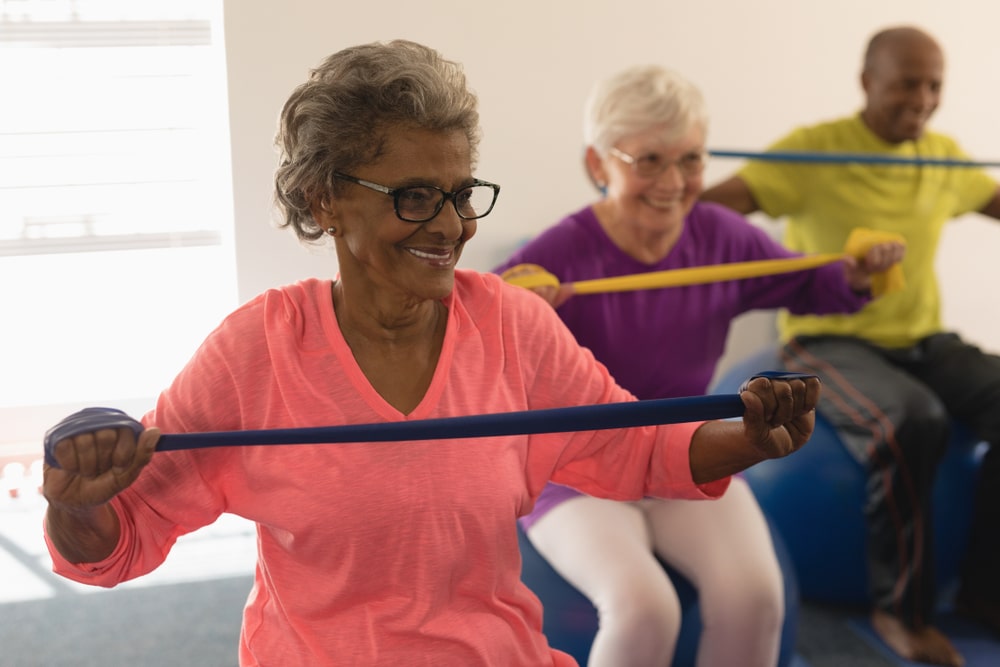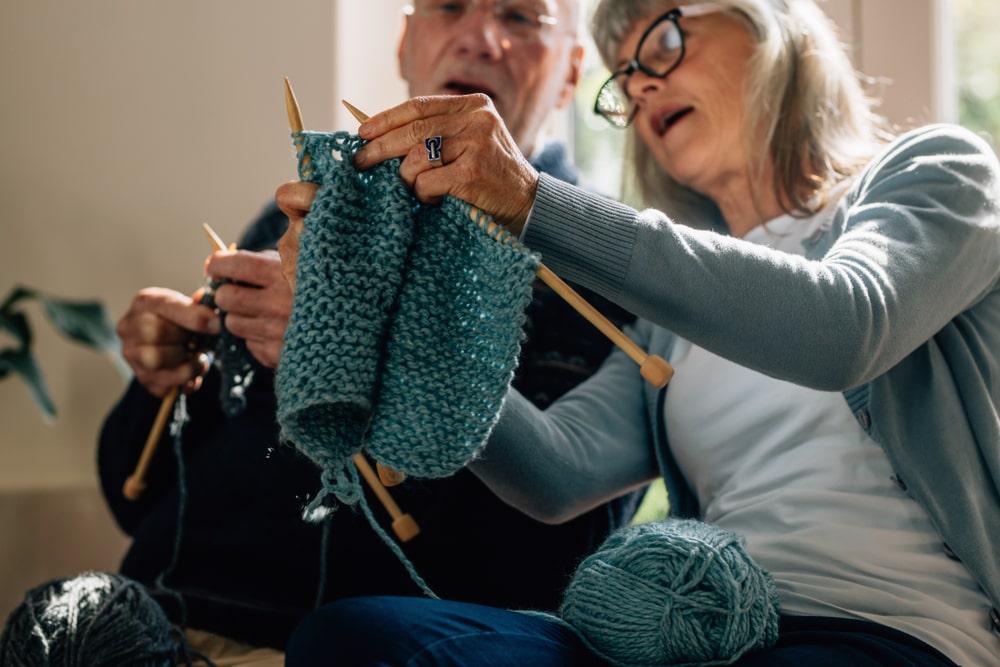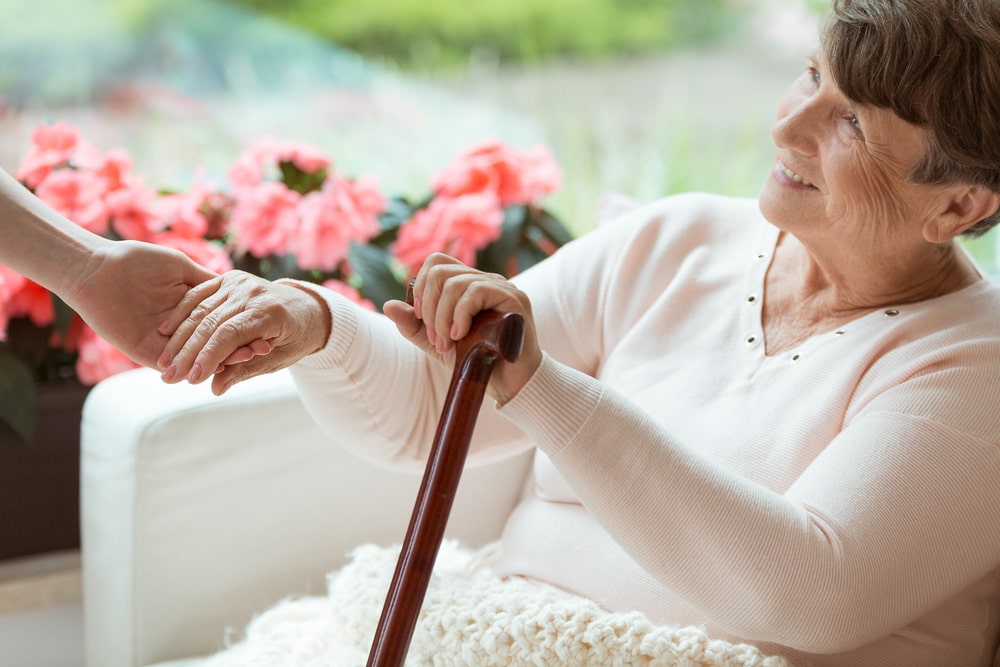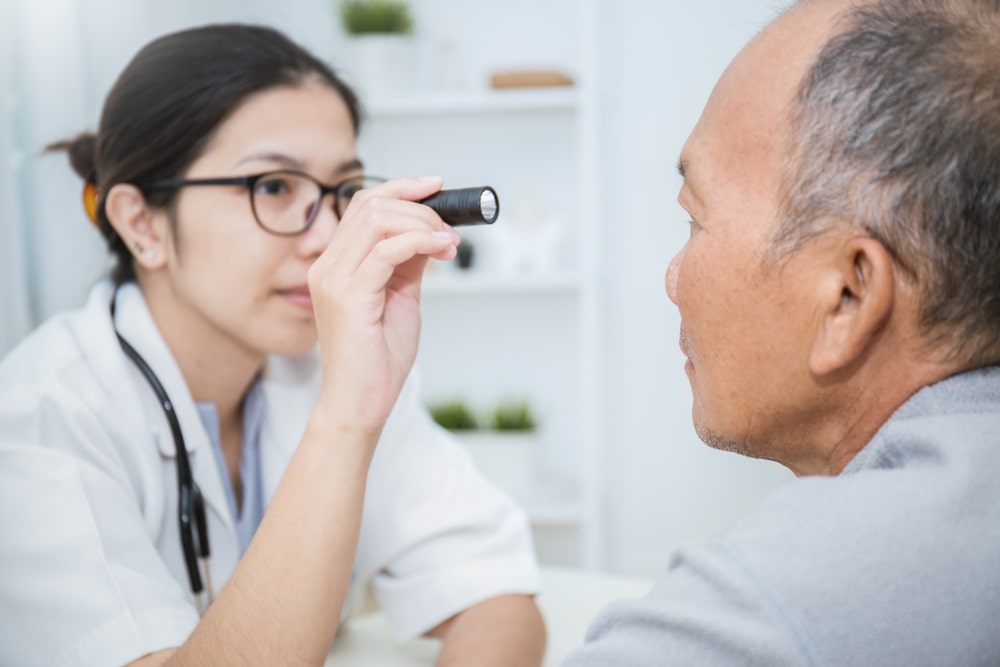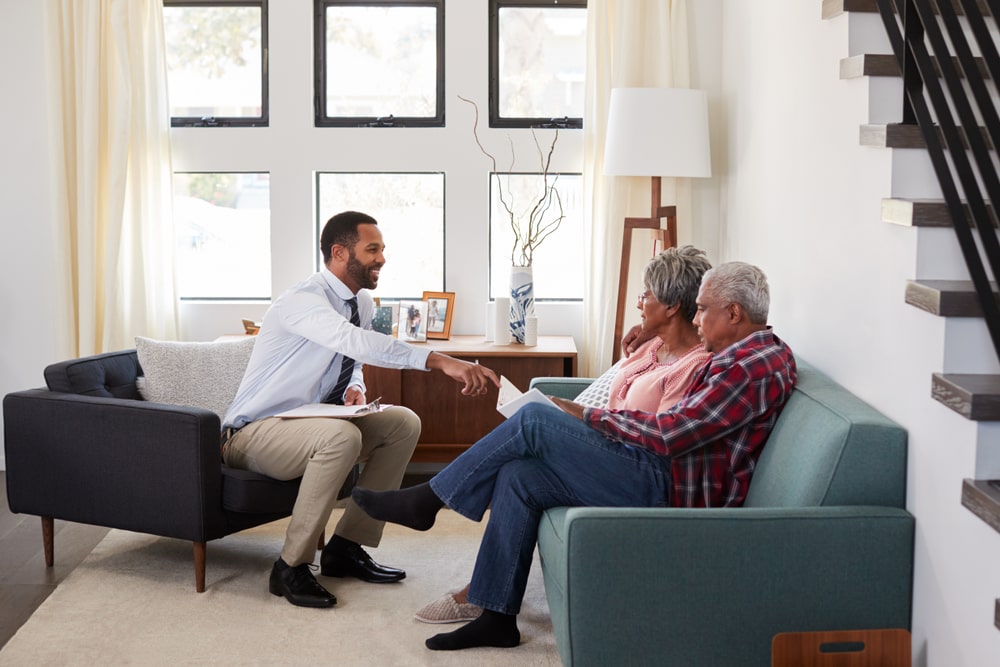Your 70s are here. Let’s make them great! While good habits benefit us throughout our lives, it’s never too late to make positive changes to your life. In addition to continuing good habits from your 60s, there are different challenges for those who have reached their 70s. Let’s go over 10 helpful and healthy practices to maintain your health and organize your affairs in your golden years.
10 Best Practices for Healthy 70-Somethings
1. Strengthen your Body
While exercise may look quite different now, it’s still incredibly important for your overall health and energy levels. Rather than engaging in high-intensity cardio sessions (unless your body is used to it already), look for low-impact cardio activities (i.e. walking, yoga, swimming, indoor cycling, etc.). Also include strength training (good for your bones) and stretching in your normal routine.

2. Manage Stress
All throughout our lives, we deal with stress. The same is true as you grow older – it’s just the specifics that change. If you’re on a fixed income, you may wonder if it will be enough. Or, you may worry about getting sick or losing friends to illness. These types of concerns can lead to stress, depression, or anxiety.
To combat stress, depression, and anxiety, try out a few easy tips:
- Take time each day to focus on something you are thankful for.
- Acknowledge and express your feelings, both positive and negative.
- Embrace and find comfort in your spirituality.
- Accept that some things are outside your control, and that’s okay.
- Try to keep your sense of humor.
- Continue to build relationships with people – you need them!
3. Engage Your Mind
While some degree of forgetfulness is normal with age, significant decline is not an inevitable part of aging. If you challenge your brain, it will function well throughout your lifetime. The key is to exercise your brain. A few ideas to get you started are:
- Try new variations of familiar activities (new types of puzzles, new recipes, a different sport)
- Learn something entirely new (a language, an unfamiliar topic)
- Seek new experiences and make new friends
- Continue eating a healthy diet and maintaining your physical activity levels
4. Eat Well and Drink Plenty of Water
Healthy nutrition has a few added challenges as you age. For instance, your sense of taste and smell can change a bit, which affects the appetite. Slower digestion and metabolism changes how your body processes food, and you begin to lose your sense of thirst, which can lead to dehydration. To combat these challenges, be intentional about your food and water intake.
Eat plenty of protein, calcium, and fiber, and drink lots of water. On average, people in their 70s drink less than four cups of water a day, and we actually need seven or eight! Try not to skip meals – you need all the healthy foods you can get to maintain your health and energy levels. If you’re having trouble maintaining a healthy diet, talk to a family member or your health care provider.
5. Rest Well and Deeply
You may think that you need less sleep now that you’re a little less active, but that’s not the case. Adults in their 70s still need 7-9 hours of sleep each night. Of course, as an older adult, there are added complications to sleep, like insomnia, daytime sleepiness, health conditions, or aches and pains that keep you awake at night.
To achieve ample rest, it’s good to set good sleep habits in place. Make sure that your room is dark, quiet, and not too warm. Turn off the TV at least one hour before bed so that your mind has time to unwind and isn’t exposed to too much stimulation so close to bedtime. And especially if you suffer from insomnia, try to exercise during the day and avoid naps. This will help you feel tired when bedtime comes around. If you are still having trouble sleeping, speak to your health care provider.
6. Be Aware of Elder Crime
Unfortunately, older adults are at risk for certain types of crime, particularly fraud (identity theft, fake checks, and various kinds of scams) and elder abuse. Most often, fraud is perpetrated by someone you don’t know, but elder abuse is a different story. Elder abuse can be physical or emotional/psychological and often involves neglect, abandonment, or financial exploitation.
To guard against elder abuse, keep the people you trust close. Also, be on the lookout for these signs of an abusive caregiver: lack of affection, don’t allow you to be alone with others, are angry or aggressive toward you, don’t clean the home or help you with personal hygiene, speak about you as if you were a burden, or give conflicting stories to explain an incident. If any of these describe someone close to you, talk to someone you trust who can help you.
7. Prevent Falls
Now is a time to be especially aware of your bone health. Osteoporosis is a significant concern for those who are aging because it can cause bones to break more easily. By adding low-impact cardio, strength training, and calcium and vitamin D to your routine, you can increase your bone mass and decrease the likelihood of broken bones.
In addition to exercise, assess the potential risks in your home and identify any potential tripping hazards (throw rugs, cords, clutter, etc.). Consider removing these hazards completely. Also, if you are having trouble now, use a cane/walker when needed and wear supportive shoes. Above all, take your time. There’s no rush.
8. Pursue Good Eye, Ear, and Heart Health
As much as we wish it wasn’t true, the older we are, the more possible it is to develop health problems. It’s especially important to take special care of your eyes, ears, and heart.
Eyes
While our eyes can change at any age, women in their 70s more commonly deal with dry eye. To help with dry eye, drink plenty of fluids and limit your time in front of a computer or tv. In general, go to regular eye exams and consider screenings for glaucoma, cataracts, and macular degeneration.
Ears
It’s commonly known that hearing loss can come with age. If you’re having a hard time hearing on the phone or in person, consider bringing it up to your health care professional. They can help you understand the best way to move forward.
Heart
For many older adults, heart disease is a concern. The good news is that heart disease isn’t inevitable – you can take steps now to protect your heart. Make sure to ask your health care professional about your heart’s current health, and then, eat nutritiously, sleep well, and get plenty of exercise (even brisk walking will help your heart). If you already have heart disease, take your medications, eat well, and exercise. These activities can still help your heart in the long run.
9. Plan Ahead
One of the best things you can do for your family is to get your affairs in order. The clearer and more organized everything is, the easier the process will be when you are gone. While we don’t like to think about our mortality, it’s best to take care of these important aspects of planning while you’re still in good health and able to make sound decisions.
The most important estate planning concerns to address are: a legal will, financial or medical power of attorney, a living will, advance care directives, and funeral planning. Feel free to bring your family members into any part of the process and get their valuable input. And once your plans are in place, designate at least two emergency contacts and make sure they have access to your information.

10. Find Joy in Each Day
As you grow older, it’s important to maintain your sense of purpose and to find joy in each day. Having a positive attitude will help you face each day with excitement and anticipation. Find things to be grateful for. Face any limitations you may have and keep a good sense of humor. Stay connected to others to increase healthy longevity. Pick up a new hobby, find ways to volunteer, spend time outdoors, join a club, or visit places you’ve always wanted to go. Continue to find ways to enjoy life and the people you love.


